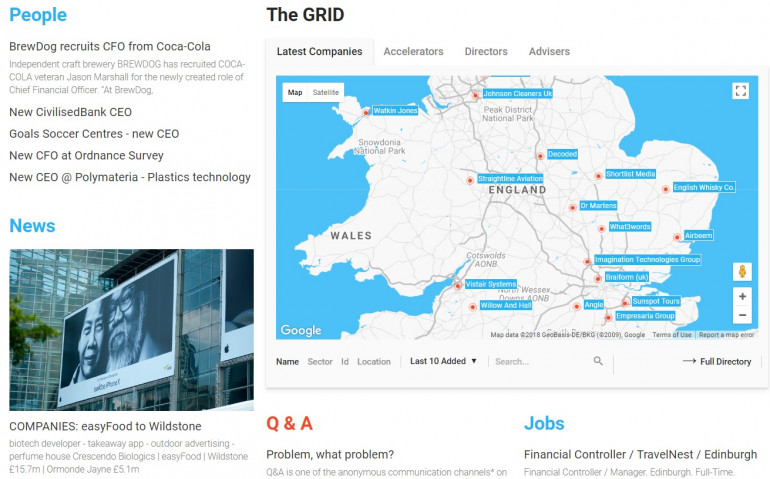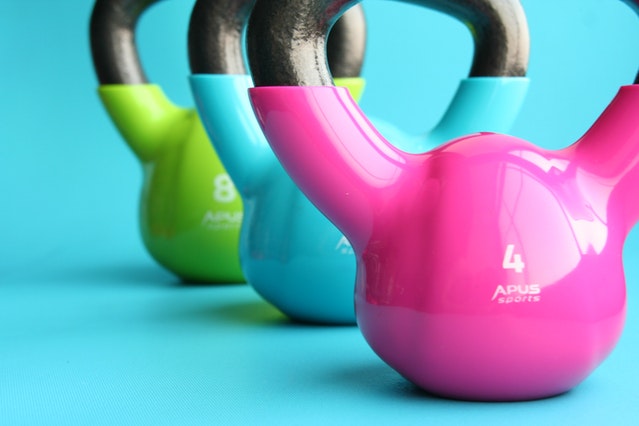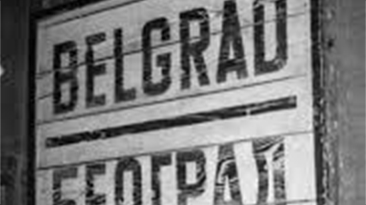Published by Directorzone Markets Ltd on May 31, 2016, 9:00 am in News, Other
Thursday February 14th 2019
EndsThursday February 14th 2019

News about 6 UK growth companies and/or accelerators + turnover in the GRID marketplace, 15-28th May 2016:
Caterham | Crate Brewery | Kelham Island Brewery | Origin £30m | Pocket Living £38m | Bloomsbury Publishing £123.7m
Off-GRID: * BTG £447.5m
CATERHAM: scrambles to get back on track |John Collingridge, The Sunday Times May 15
DZ profile:
Business: maker of low-slung, stripped down, two-seater, sports car designed 60 years ago - the Caterham Seven. Caterhams cost about £18,000 each. Caterham sells about 20% of the 500 cars it builds a year to Japan, its biggest market after Britain. Caterham builds an average of 10 cars a week, taking about six months from order to delivery.
Caterham is in recovery mode.
ICB Classification: 3353 Automobiles
Launched: almost 60 years ago
Location: Dartford
Founder: Graham Nearn, dealer and engineer
Staff: 108. Chief executive Graham Macdonald was elevated from finance director to chief executive in 2012 and given control of the F1 team as well as the car plant the year after.
Financials: £6m losses
Investment: Two Malaysian tycoons — Queens Park Rangers football club chairman Tony Fernandes, founder of the budget airline Air Asia, and his business partner Kamarudin Meranun — bought the car maker in 2011 with a plan to make it a global brand. Fernandes He already owned an F1 team bearing the Lotus name, and wanted to use the top tier of motorsport to build the Caterham brand. They paid £8.5m for it from Corven, a London venture capital fund.
News:
1. A venture with Renault was announced in 2012 with plans to launch of a new road car. The car was to be built at the Alpine factory in Dieppe in Normandy — 3,000 branded as Alpines and 3,000 as Caterhams. Caterham sold out of the 50/50 venture in June 2014, booking hefty losses on its £20m investment — a big part of the £20.3m of losses it recorded in the 18 months to July 2014. Losses shrunk to £6m in the most recent year.
2. Made a Formula One car during the 2012, 2013 and 2014 seasons, until October 2014 when the team called in administrators.
3. Macdonald has still not given up on launching a new model but admits it is likely to be another manufacturer’s car badged as a Caterham.
It’s all hands to the pumps for craft beer. Microbreweries are thriving despite high start-up costs and barriers to growth | Emma Broomfield, The Sunday Times
CRATE BREWERY
DZ profile:
Business: a brewery with a bar and pizzeria. Makes about 12,000 litres (21,000 pints) of beer a week, 30% of which is consumed at its bar. More than 5% is exported to America, Sweden and Hungary.
ICB Classification: 3533 Brewers
Launched: 2012
Location: Hackney, east London
Founders: New Zealand-born siblings Jess Seaton, 31, her brother Tom, 35, and Neil Hinchley, 42.
Financials: sales doubling year on year, with 70 staff needed in summer.
KELHAM ISLAND BREWERY
DZ profile:
Business: brewery and its two pubs. Has seen off all rivals to become Sheffield’s oldest brewery in production. The brewery produces 30,000 pints a week and its beers are stocked by local Waitrose and Tesco stores.
ICB Classification: 3533 Brewers
Launched: 1990
Location: Sheffield
Founder: late father of Edward Wickett, 25
Staff: 25
ORIGIN: success opens so many doors — that we made | Laura Onita, The Sunday Times
DZ profile:
Business: designs and manufactures upmarket bi-folding doors as well as windows and electric blinds. Also has operations in Dubai and America. Britain accounts for 92% of its revenues but Origin also sells to France, Germany and the United Arab Emirates.
ICB Classification: 2353 Building Materials & Fixtures
Launched: 2001
Location: High Wycombe, Buckinghamshire
Founder: Neil Ginger, 42 and his cousin, Victoria Brocklesby
Staff: 250
Financials: reported profits of £3.4m on sales of £17m in 2014. Revenues are expected to reach £30m this year.
Investment: Ginger owns 20% of the business and the rest is split between his family and Brocklesby’s.
News:
1. Sales of made-to-measure doors and windows took off, so in 2005, the partners opened their first Origin factory, in High Wycombe.
2. After a few years of organic growth, his business was hit by the recession and an increasingly competitive market, which made him decide to change tack. So he and Brocklesby decided to cut the waiting time and offer next-day delivery. It paid off: in 2010 Origin made more than 10,000 doors, which gave Ginger the confidence to scale up the business. The following year they opened an office in Dubai, which was followed by an operation in North America in 2014.
3. There are plans to expand the business in America, where the company sells its products in 22 states so far, and on the Continent. Origin’s components are manufactured in the UK and shipped to Florida, where they are cut and shaped.
POCKET LIVING: Marc Vlessing of Pocket micro-homes is big in small housing | Judith Evans, FT. May 18.
DZ profile: Pocket Living Limited
Business: specialist housebuilder which builds affordable one-bed flats in London. Has built about 250 such homes outside central London. He negotiated with local authority planners to build blocks of more than 14 apartments that would be sold to owner-occupiers at 20 per cent below market rates: these were not technically “affordable” homes under the government definition at the time, but intermediate housing sorely needed by young professionals in the UK capital. In exchange, he would offer no social housing and would build flats that would be smaller than existing space standards. Apartments at an average of 38 sq m. Typical buyers are 32 and earning £40,000 a year. But some are much older; the price of the home remains discounted in perpetuity even when it is sold on.
Launched: 2005
Location: Covent Garden, central London
Founders: Marc Vlessing, chief executive, born in the Dutch city of Arnhem, former banker, handles politics and public affairs; Paul Harbard, a former finance director of the housing association Peabody Trust, runs operations and finance.
Financials: It expects turnover of £38m, and to make its first profit, in the year to October 2016. in 2013, Pocket secured a £21.7m loan facility from the Greater London Authority, the authority’s first to a profitmaking housebuilder. The following year it secured a £30m revolving debt facility from Lloyds.
Investment: Vlessing and Harbard retained 90 per cent until they sold a 50 per cent stake in February to the RELATED COMPANIES GROUP - a subsidiary of the US food group CARGILL - majority owned by US billionaire Stephen Ross, in a deal that valued Pocket at £25m.
1. Pocket commands influence beyond its size: the UK government has borrowed its phrase “starter homes” and its 20 per cent discount idea for a flagship scheme of the same name aimed at making properties affordable to first-time buyers.
2. Pocket’s current pipeline includes 600 one-bedroom apartments, but with added firepower from Related, it hopes to expand into two-bedroomed flats, privately rented homes and building on land bought from public bodies such as Transport for London.
UPDATE:
My pocket-sized homes give the low-paid a leg-up | Liam Kelly, The Sunday Times. December 16 2018
3. After leaving CRESCENT ENTERTAINMENT - the entertainment arm of development firm CHESTERFIELD PROPERTIES - which ran the Donmar and Playhouse theatres, Vlessing, 56 set up Pocket Living.
4. Since 2005, it has built more than 650 flats — most of them 410 sq ft in size, the smallest allowed by regulations. Another 1,100 are in the pipeline. Pocket Living buys awkward sites that might be unattractive to other developers.
5. Last year it reported pre-tax profits of £4.3m on sales of £46.3m.
6. There is an income restriction for those looking to buy a Pocket flat. There are sell-on restrictions and they can only be let in exceptional circumstances.
7. successive London mayors — Boris Johnson and Sadiq Khan — bought into Vlessing’s vision and between them provided more than £50m of interest-free loans, which Pocket must pay back in 10 years.
8. ...employs 48 people and plans to expand outside London.
* BTG: Snake anti-venom boost adds bite to BTG | Andrew Ward, FT. May 18.
DZ profile:
Business: London-listed medical technology group has been transformed under Dame Makin’s leadership into a specialist healthcare group from its origins as a warehouse for UK state-owned intellectual property rights to technologies ranging from the hovercraft to MRI scanners. It started out as the National Research Development Corporation in 1948 and was later renamed British Technology Group before its privatisation in 1992.
ICB Classification: 4573 Biotechnology
Launched: 1948
Staff: Dame Louise Makin, BTG chief executive,
Financials: Sales in the year ended March 31 were £447.5m ($647.4m), up 22 per cent, from the year before. Pre-tax profits more than doubled to £57.5m.
News:
1. CroFab remains the company’s second-biggest product 15 years after it was launched as the first new rattlesnake antivenom in half a century. Sales of CroFab rose 2 per cent last year, to £67.9m. Production is a complex international process. Venom is “milked” from captive rattlesnakes in Utah and shipped to Australia where it is injected into specially reared sheep to produce antibodies; the sheep’s blood is then used to make antivenom at a facility in rural Wales.
2. BTG has been reducing dependence on CroFab with a series of acquisitions such as its $110m deal this month to buy Galil Medical, a US surgical equipment specialist that uses compressed gas to freeze and kill tumours.
3. The fastest growth came from the interventional medicine division, which produces high-tech treatments and devices using more targeted and less-invasive techniques than traditional medical products. As well as the “ice ball” procedure involved in the Galil acquisition, other products include tiny beads that can be filled with chemotherapy drugs or radiation to deliver precision cancer treatments.
BLOOMSBURY PUBLISHING: Harry Potter and the continuing boost to Bloomsbury | FT. May 19
DZ profile:
Business: publishes J.K. Rowling’s seven-book Harry Potter series. First published in 1999, it has been a consistent best-seller with readers worldwide. Chief executive Nigel Newton said Bloomsbury will focus its business towards academic and professional publishing, with a focus on digitally generated revenues, to lead a repositioning in the market from a primarily consumer publisher to a digital B2B publisher.
ICB Classification: 5557 Publishing
Staff: Chief executive Nigel Newton
Financials: Pre-tax profits hit £13m in the year to February 29, up 8 per cent, while revenues also grew 11 per cent to £123.7m. Bloomsbury’s total book sales rose 17 per cent year on year to £113.1m and digital sales increased by 28 per cent to £15m. Revenues from its academic books was lower than expected at £32.7m, but digital earnings rose 24 per cent – three times more than industry’s growth rate.
News:
1. Bloomsbury said its latest illustrated version of Harry Potter and the Philosopher’s Stone was its biggest hit with book-lovers, and helped overall revenues from children’s books grow 57 per cent to £41.8m.
2. Interest in the books has been revived further of late. Potter fans are now awaiting the upcoming publication of the script of Harry Potter and the Cursed Child in July- a stage play that picks up the wizard’s life 19 years from the end of the final novel.
3. Osprey publishing, which Bloomsbury bought at the end of 2014, generated revenues of £7.2m. The publisher said the business had been “successfully integrated” and helped push up revenues in its Adult books division.
Tags:
GRID
3353 Automobiles
3533 Brewers
2353 Building Materials & Fixtures
3728 Home Construction
5557 Publishing
4573 Biotechnology








